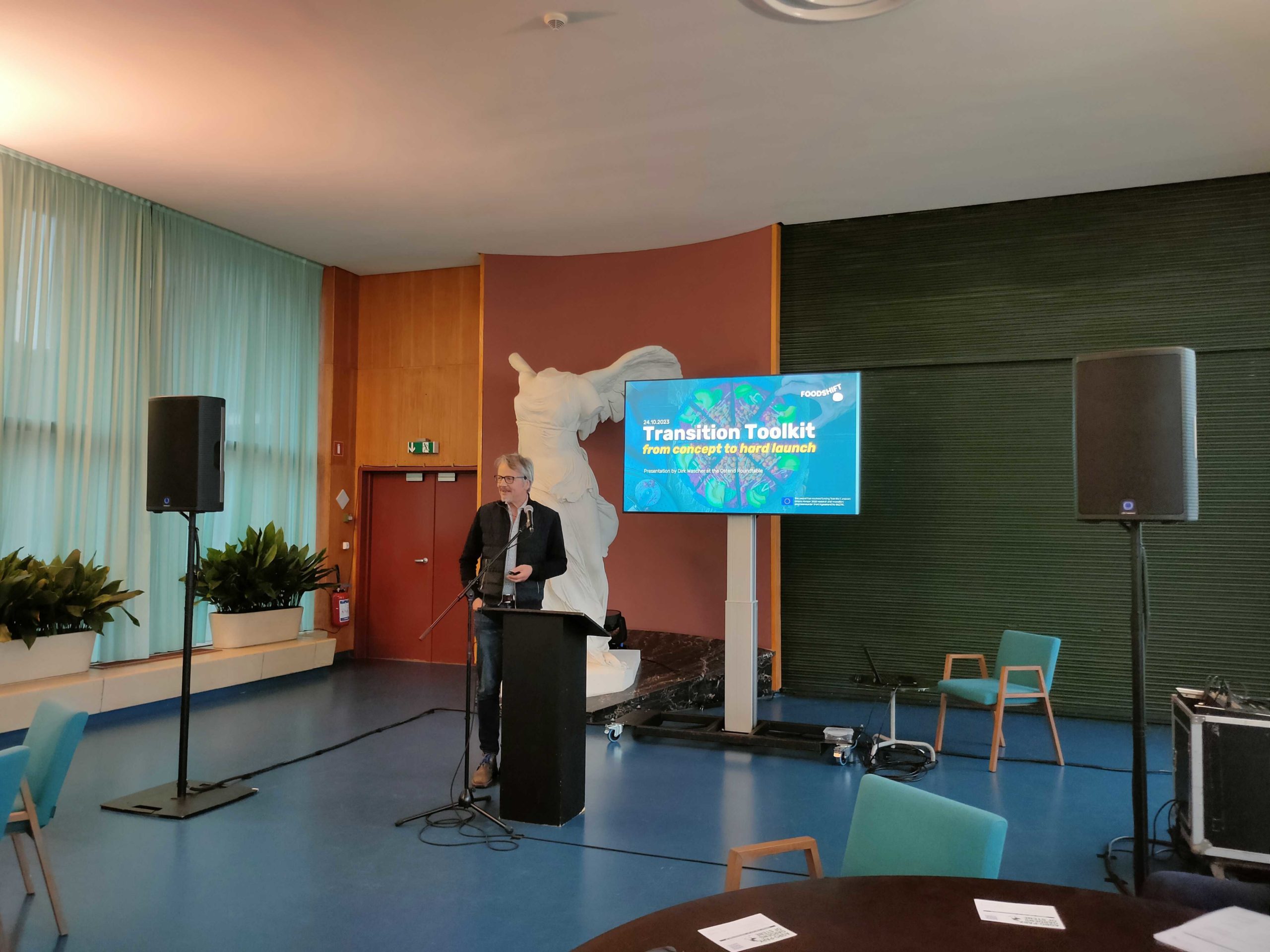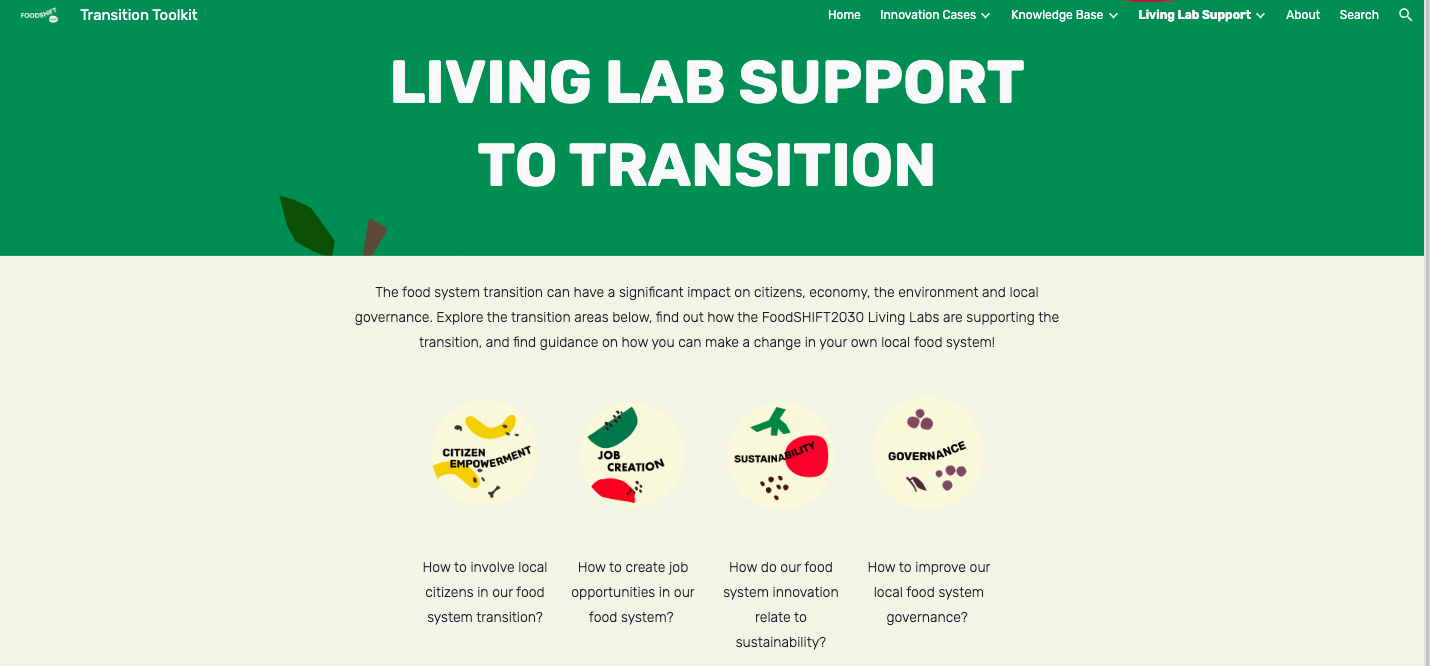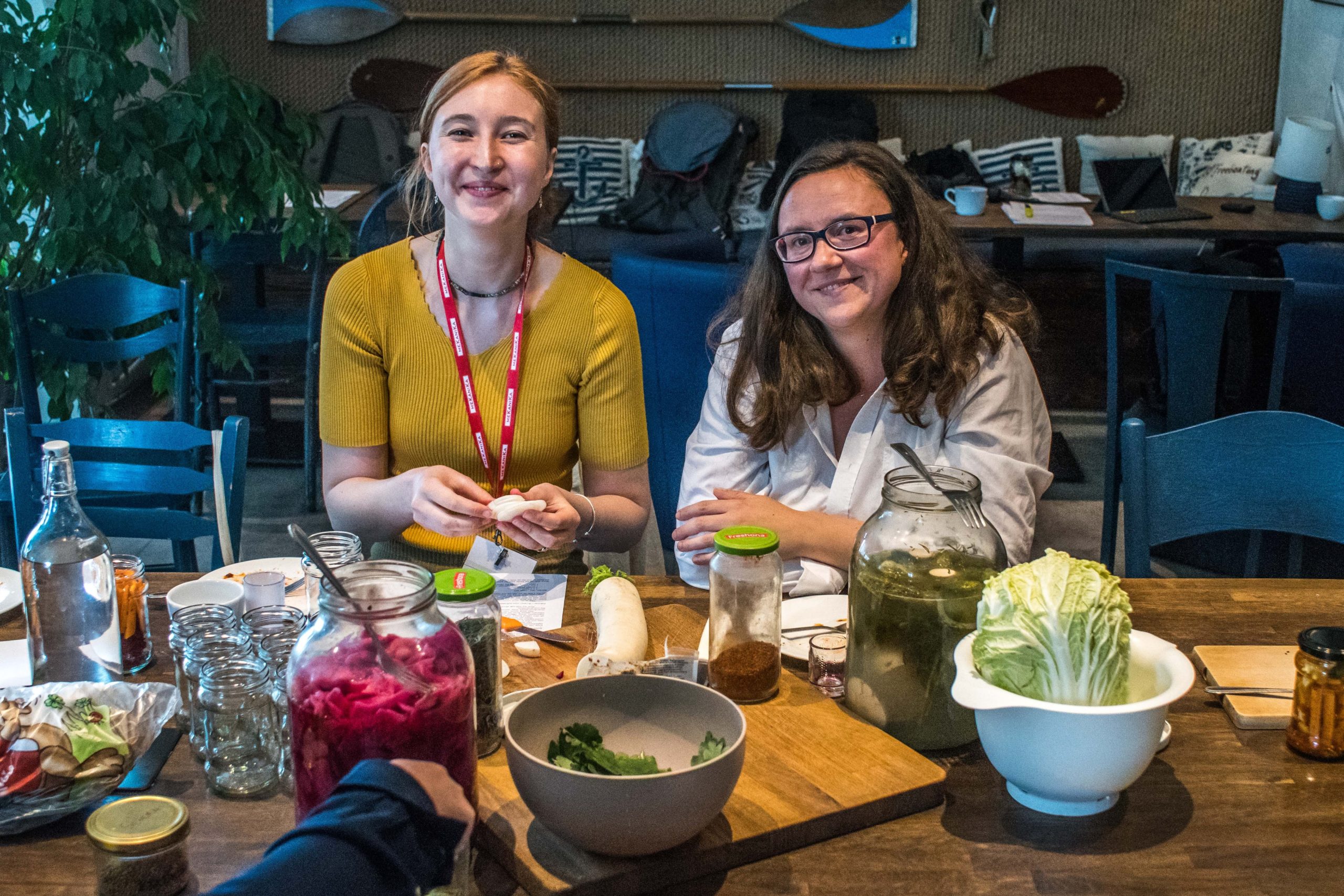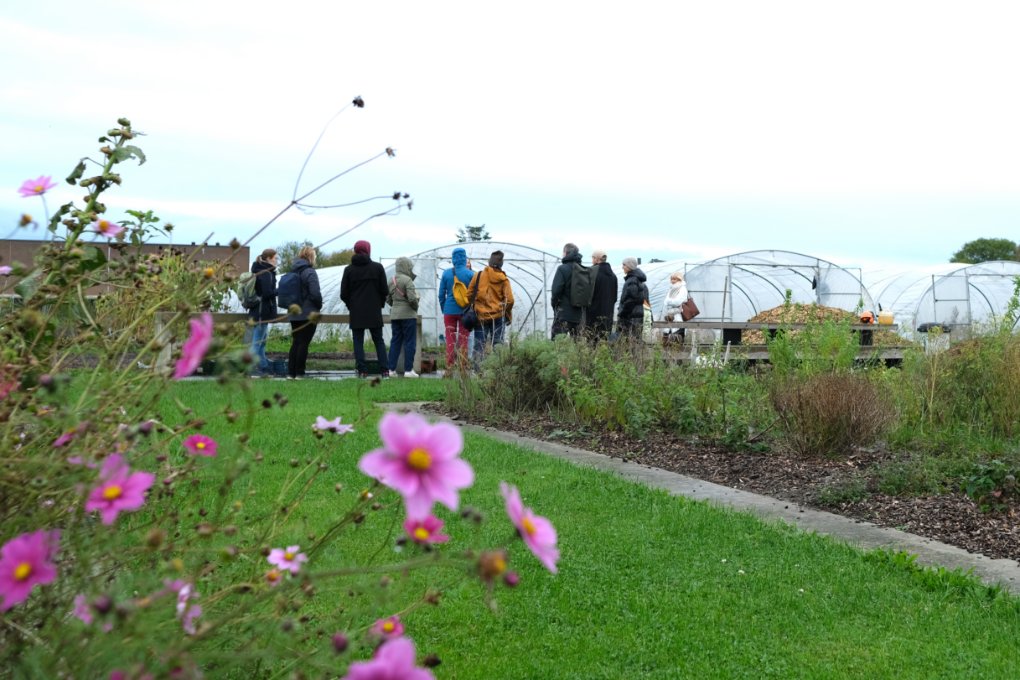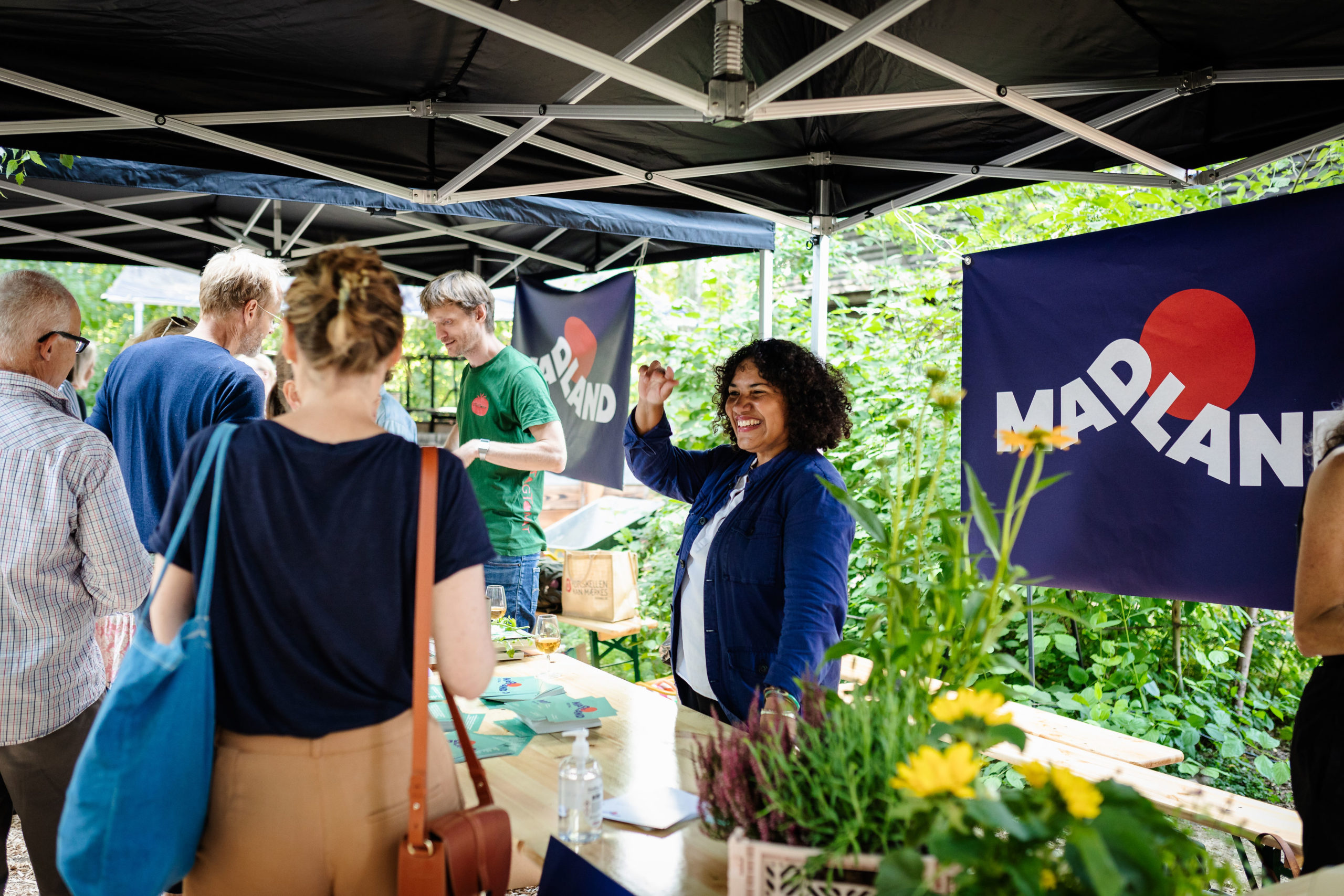Citizen engagement is about meeting where people already are
28 April 2023
Photo credits: Brasov FAL
Citizen engagement is about meeting where people already are, finds latest FoodSHIFT workshop
Recording of Food Citizenship and Building Engagement workshop
‘Food Citizenship and Building Engagement’ was the latest participatory online workshop coordinated and faciliated by Food Matters and Sustain on citizen engagement, as part of a new series of online training for FoodSHIFT. Following on from the first workshop, Governance and Food Strategy in December 2022, this latest workshop invited participants to consider citizen involvement as a key ingredient to transforming the food system. Speakers included Maarten Crivits, from ILVO, Annika Frühbeißer from Agrathaer, and Kathy Belpaeme, City of Oostende, Belgium, FoodSHIFT FAL and Chris Walsh, Kindling Farm, Manchester, UK.
Maarten Crivits from ILVO, and the FoodSHIFT lead on citizen engagement, opened up the session by considering the different levels of citizen participation, from informing, consulting, to involvement and empowerment. He also looked at the role of digital platforms in improving a city-regions’ initiatives for citizen engagement and a possible blueprint towards citizen empowerment in a city- region, all represented in this latest FoodSHIFT Empowerment Scheme. Maarten closed with the reflection that is isn’t such an easy task to empower citizens, and that not everyone will become
engaged with the process. In a helpful analogy, Maarten said the minimum organisations can do if they wish to engage citizens is to ‘put a meal on the table, make that meal appealing, and make sure that meal is connected to a wider system for providing concrete options for participating in that meal’.
engaged with the process. In a helpful analogy, Maarten said the minimum organisations can do if they wish to engage citizens is to ‘put a meal on the table, make that meal appealing, and make sure that meal is connected to a wider system for providing concrete options for participating in that meal’.
Annika Frühbeißer from Agrathaer was up next and took us through some of the most common challenges and opportunities FoodSHIFT FALs (the project cities) came across when engaging with their local citizens, as presented in these FoodSHIFT fact sheets on citizen engagement . While the FALs come from different backgrounds, with their food partnerships either made up of municipalities, universities or the private sector, with different structures and levels of resource, some common challenges emerged for everyone, such as:
– Mobilising citizens, even harder to mobilise and involve farmers
– Finding farmers in city regions to supply food locally
– Enrolling a wider circle of citizens beyond those who started the initiative
– Finding a balance between participatory and demoratic approach, vs economic efficiency
– Transfroming structures of citizen initiatives into more formal organisations with public
funding is hard when wishing to maintain some of the initial foundational values
– Communicating and building a relationship between munipalities and citizens
– Funding and investments, and access to land
– Low tech
– Finding farmers in city regions to supply food locally
– Enrolling a wider circle of citizens beyond those who started the initiative
– Finding a balance between participatory and demoratic approach, vs economic efficiency
– Transfroming structures of citizen initiatives into more formal organisations with public
funding is hard when wishing to maintain some of the initial foundational values
– Communicating and building a relationship between munipalities and citizens
– Funding and investments, and access to land
– Low tech
Whilst the challenges vary and there is no one solution that fits all cities, in continued conversation with the FoodSHIFT FALs, some proposed solutions were shared, such as:
– Participatory budgeting (Municipalities provides budget but task of citizens to decide how to spend it. Citizens can define actions and vote.)
– Awareness campaigns to enroll farmers in these initiatives, for example in farmer schools
– Innovative ideas when looking at facilitating access to land access, for example
municipalities could contract farmers
– Development of a social business model, to secure long term funding
– Back any pitch with research, facts and data to rasie long term funding and make your
initiative more attractive
– Link up with other cities and other actors
– Innovative ideas when looking at facilitating access to land access, for example
municipalities could contract farmers
– Development of a social business model, to secure long term funding
– Back any pitch with research, facts and data to rasie long term funding and make your
initiative more attractive
– Link up with other cities and other actors
Following a breakout session in which participants could get to know each other and share a little more from their perspective, the workshop closed with a guided conversation facilitated by Callum Etches from Food Matters, with Kathy Belpaeme, the City of Oostende’s food policy officer and who works to support the city’s agro-park and the Communitiy Supported Agriculture (CSA) project within it; and Chris Walsh from The Kindling Trust, Manchester, a project that looks at supply chains, working with farmers, new growers and volunteers, trying to create farming livelihoods at one end, and address food insecurity at the other.
Both considered how they have built up community engagement and instances of when they have tried to reach new people, using different methods. Chris spoke about the farm’s efforts to reach out to white working class groups and refugees in Manchester, partly because they are in areas where some of their operations take place but also because they are groups who do not usually engage with the farm. In order to attract specific audiences, when the farm puts on events, they only do so through in person invites or putting up leaflets. They use social media sparingly, depending on which groups they wish to target. “As with anything promoted on social media it just instantly gets booked up with people on their smart phones, creating a culture at the event and excluding others”, shared Chris. So efforts are made to go direct to the people they want to engage rather than promoting generally. In response to engaging different groups, Kathy shared how the City of Oostende works with other organisations in the city to reach people who don’t speak the national language and who may know how best to approach different communities. “Setting up informal events in different parts of the city and getting people to come along and cook works nicely”, she said. Other resources highlighted by the audience for supporting more people to get involved in community food action and putting diversity, inclusion and anti-racism at the heart and start of movement-building included
the Sustainable Food Places Growing the Good Food Movement toolkit.
the Sustainable Food Places Growing the Good Food Movement toolkit.
The workshop ended with some takeaway questions for participants to think over to help consolidate what was learned at the workshop and in preparation for the following two workshops later this year. All were invited to join the FoodSHIFT+ email forum as a way to continue the conversation beyond the workshop and feed into the international network with their own challenges, insights and expertise.
Keep an eye out for the next two workshops in 2023 as part of this series. These workshops are open to local food partnerships or councils who would like to join the FoodSHIFT network, keen to build local food strategies with community involvement that result in positive transformation of the food system.
